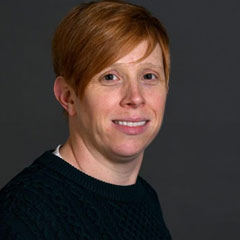Lauren Aylott, Research Associate, MHARG, Department of Health Sciences; Project Support Officer, Involvement@York, Research, Innovation and Knowledge Exchange Directorate
Lauren is a Research Associate for the Mental Health and Addictions Research Group, as well as a Project Support Officer for Involvement@York (I@Y)

I@Y are a team at the heart of the University who champion public involvement in research and wider participatory approaches to research. Lauren completed her PhD at Hull York Medical School.
Prior to undertaking her PhD, Lauren worked in various clinical and corporate roles at Tees, Esk and Wear Valleys NHS Foundation Trust.
email: lauren.aylott@york.ac.uk
Our 60-second interview with Lauren:
Could you please tell us what work you do in the field of mental health?
During my PhD, I developed and validated a situational judgement test to assess staff members’ professional judgement. Since then, I have been appointed as a research associate to undertake a research study evaluating the physician associate role in mental health services. In addition, I am the mental health lead for Involvement@York and support patient and public involvement across a range of mental health projects that are being undertaken across the University.
What do you find most rewarding and inspiring in this work?
I am grateful of the opportunity to be able to support public involvement in research, enabling patients and the public to influence studies at the university and, in turn, have a positive impact. I am also keen to hear individuals’ experience of the physician associate role in mental health services allowing us to make recommendations about how this role should be best implemented in practice.
What is the most challenging or complicated aspect of this work?
It’s challenging when researchers do not truly value public involvement – that is, having patients or other people with relevant experience contribute to how research is designed, conducted and disseminated. Tokenistic public involvement can result in the public having a negative experience and, in turn, make it less likely for them to want to engage in future projects. With regards to research, getting through the NHS ethics process in a timely manner is always a challenge.
What impact do you hope your work is having - or can potentially have?
I hope that researchers, patients and the public alike have a positive experience of public involvement in research. Having the opportunity to undertake research on the physician associate role will also hopefully improve staffing in mental health services, ultimately influencing the care provided to patients.
Could you share with us one piece of advice that you follow for your own mental health?
I like to cycle in the countryside. Joining a club has allowed me to connect with others that share this enthusiasm too.